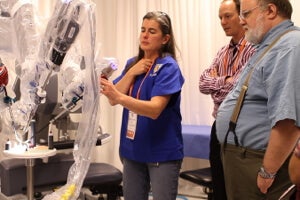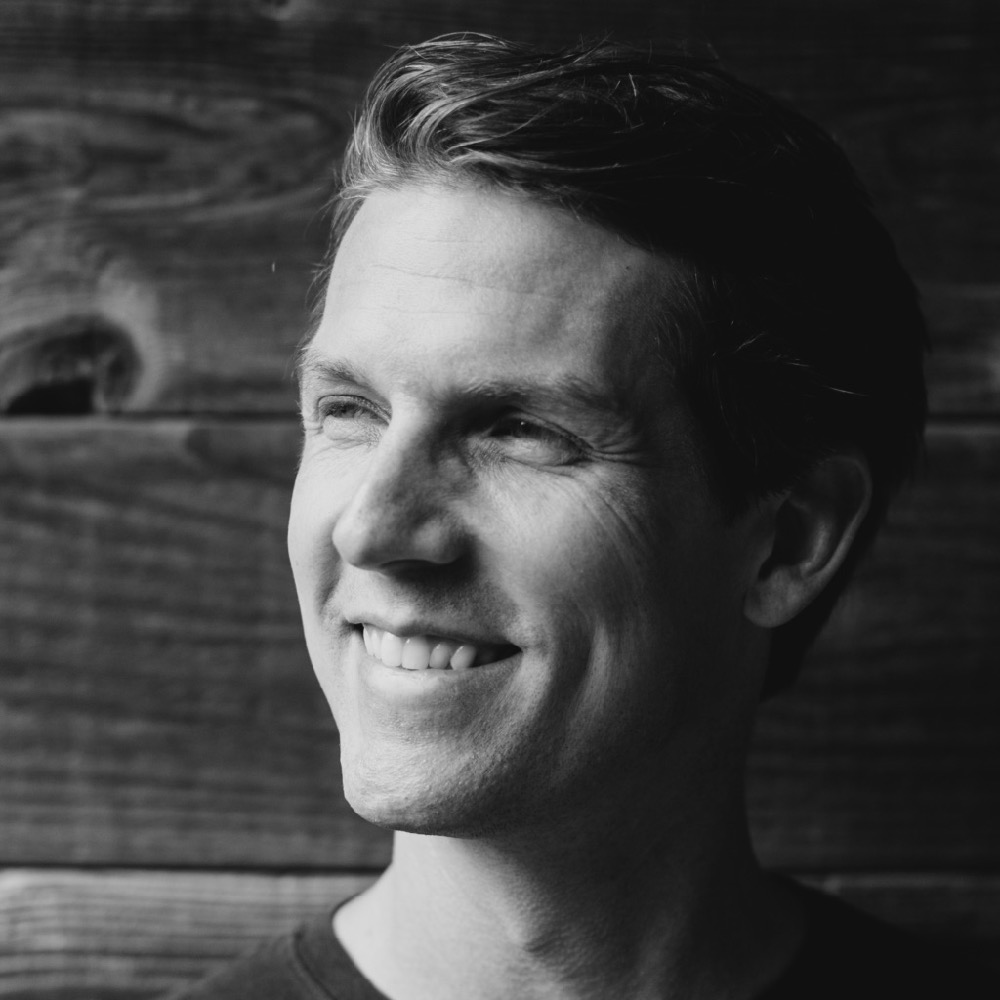Healthcare is ‘Ripe for Disruption’ – Join the Future of Medicine Executive Program This November
Last February, at Singularity University’s FutureMed, I talked to Dr. Peter Diamandis about medical tricorders and mining asteroids, got a guided tour of a surgical robot from Dr. Catherine Mohr (head of research for Intuitive Surgical), and watched 16-year-old phenom and International Science Fair Grand Champion, Jack Andraka, bring down the house with a talk on how to diagnose pancreatic cancer with carbon nanotubes. What does all this say about FutureMed? One, the event attracts some of the best and brightest. Two, both the participants and faculty span disciplines and specialties. Three, there’s this amazing synergy that only happens at FutureMed—great moments tend to materialize. Like the previous two FutureMeds, the February event sold out early—so, the team decided to put on a sequel at San Diego’s historic Hotel Del Coronado in November. If you missed the February FutureMed, it's not too late for 2013.

Share
Last February, at Singularity University’s Future of Medicine Executive Program, I talked to Dr. Peter Diamandis about medical tricorders and mining asteroids, got a guided tour of a surgical robot from Dr. Catherine Mohr (head of research for Intuitive Surgical), and watched 16-year-old phenom and International Science Fair Grand Champion, Jack Andraka, bring down the house with a talk on how to diagnose pancreatic cancer with carbon nanotubes.
What does all this say about the Future of Medicine program?
One, the event attracts some of the best and brightest. Two, both the participants and faculty span disciplines and specialties. Three, there’s this amazing synergy that only happens at these events—great moments tend to materialize.
Executive Director Dr. Daniel Kraft, Founding Executive Producer Robin Farmanfarmaian, and the Singularity University team hope these moments of new insight and cross-pollination result in big ideas, new approaches, and even companies capable of transforming a biomedical industry ripe for disruption.
Like the prior two Future of Medicine EPs, the February event sold out early—so, the team decided to put on a sequel at San Diego’s historic Hotel Del Coronado in November. If you missed February's program, it's not too late for 2013.
The Hotel Del Coronado is a magical venue. Having hosted presidents and movie stars, the resort offers fine dining, accommodations, and activities. And its 28 acres of beachfront property survey the waters of San Diego Bay and the Pacific Ocean.
There’s nothing like open spaces to open minds, and you’ll want to open your mind for this program. The roster of speakers is packed.
Marty Kohn, Chief Medical Scientist at IBM, is intent on making the firm's resident AI, Watson, into a seasoned physician assistant. Watson famously defeated Jeopardy champs Ken Jennings and Brad Rutter in 2011. It was a Deep Blue vs. Kasparov kind of moment for artificial intelligence. Find out why Kohn thinks Watson will transform modern medicine forever.
Or hear Dr. Catherine Mohr, Director of Medical Research at Intuitive Surgical, maker of the da Vinci surgical robot, outline how robots are making surgery less invasive—and yet looming disruptive technologies may make surgical robots, and even some surgeries, a thing of the past.
Then there’s Eric Topol, Chief Academic Officer at Scripps Health and one of the ten most cited researchers in medicine. Topol is a practicing cardiologist and top researcher who studies how real time data and genetic clues, provided by low-cost genomics and wireless sensors, will empower preventative care in coming years.
Kohn, Mohr, and Topol are just a sampling of the faculty slated for this November's program. But it isn’t all lectures—there’s a mix of hands-on demos, workshops, and more.
Be Part of the Future
Sign up to receive top stories about groundbreaking technologies and visionary thinkers from SingularityHub.


Participants may find themselves operating a da Vinci surgical robot or getting a genetic workup by 23andMe. And after hours, gifted practitioners, professionals, and entrepreneurs spanning the healthcare spectrum get to talking over a beverage. It’s in this cross-disciplinary mingling that the program's magic is most evident.
After attending this February’s event, Dr. Ketan Patel advised, “Introduce yourself to everyone you meet there—lots of very accomplished and deep thinkers. Solutions to some of your company’s problems are locked up in those brains attending.”
The Future of Medicine EP might simply open your eyes to the latest and greatest technologies in the pipeline—or it may inspire a career shift. Patel, for example, is wrapping up his full-time medical practice as he focuses on launching a few healthcare startups.
Indeed, several exciting healthcare startups are firmly rooted in t. Walter De Brouwer founded Singularity University Labs company, Scanadu, after attending a previous Future of Medicine EP. Scanadu’s recent Indiegogo campaign for its medical tricorder-like Scout device met its goal of $100,000 in a record two hours—before going on to net an Indiegogo record $1.6 million.
Meanwhile, Jointly, another SU-inspired company, is venture-backed and combines machine learning and big data to help doctors remotely keep tabs on their patients’ health moment to moment. Jointly hopes to help healthcare practitioners avoid some $88 billion in costs from preventable hospitalizations.
Whether you want inspiration for your next startup or just a solid primer on the future of technology and healthcare, the Future of Medicine EP fits the bill. Apply to attend a singular, potentially life-changing three days with Future of Medicine Executive Program at the Hotel Del Coronado.
Singularity Hub is owned by Singularity University and, unless otherwise noted, independently operated by its editorial staff. This article is Singularity Hub's marketing communication regarding an event that is owned and operated by our parent, Singularity University.
Jason is editorial director at SingularityHub. He researched and wrote about finance and economics before moving on to science and technology. He's curious about pretty much everything, but especially loves learning about and sharing big ideas and advances in artificial intelligence, computing, robotics, biotech, neuroscience, and space.
Related Articles

Scientists Send Secure Quantum Keys Over 62 Miles of Fiber—Without Trusted Devices

This Light-Powered AI Chip Is 100x Faster Than a Top Nvidia GPU

How Scientists Are Growing Computers From Human Brain Cells—and Why They Want to Keep Doing It
What we’re reading

